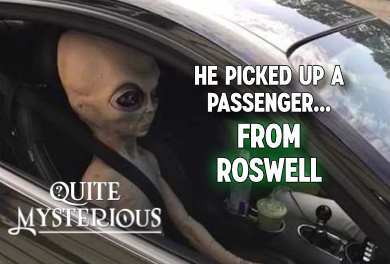Palaeontology
June 20, 2017 · 5 comments
5 comments

The volcanic activity proved deadly to much of the Earth's wildlife. Image Credit: C.G. Newhall / USGS
The dinosaurs then filled the gaps left behind by all the species that were wiped out.
The findings were based on an analysis of the amount of mercury present in the sediment from this time period - a prime indicator of the level of volcanic activity that would have been occurring.
"If you can see a big spike in mercury in those sediments, you can infer there is volcanism happening at that exact time," said Professor Percival.
"And that's what we see at the time of this extinction."
This intense period of volcanism would have proved devastating to most living things, even those living a great distance from the eruptions themselves.
If it hadn't been for this mass extinction event however, things may have turned out very different.
"Before the extinction and the volcanic eruptions, there were many groups of large reptiles, such as large crocodile-like animals, early relatives of mammals, as well as the dinosaurs themselves," said Professor Percival.
"The dinosaurs were not a major group at that time. However, the extinction killed off the first two groups, leaving the dinosaurs as the only major land-based reptile group left."
"The dinosaurs then had the opportunity to exploit the gaps in the ecosystem, which ultimately led to their domination of planet Earth for the next 135 million years."
Source: BBC News | Comments (5)
Intense volcanism gave rise to the dinosaurs
By T.K. RandallJune 20, 2017 ·
 5 comments
5 comments
The volcanic activity proved deadly to much of the Earth's wildlife. Image Credit: C.G. Newhall / USGS
A mass extinction event 200 million years ago made it possible for the dinosaurs to dominate the planet.
A new study led by Lawrence Percival from the Earth sciences department at Oxford University has revealed that the rise of the dinosaurs was preceded by a period of intense volcanic activity which brought about one of the largest mass extinctions in the planet's history.The dinosaurs then filled the gaps left behind by all the species that were wiped out.
The findings were based on an analysis of the amount of mercury present in the sediment from this time period - a prime indicator of the level of volcanic activity that would have been occurring.
"If you can see a big spike in mercury in those sediments, you can infer there is volcanism happening at that exact time," said Professor Percival.
"And that's what we see at the time of this extinction."
If it hadn't been for this mass extinction event however, things may have turned out very different.
"Before the extinction and the volcanic eruptions, there were many groups of large reptiles, such as large crocodile-like animals, early relatives of mammals, as well as the dinosaurs themselves," said Professor Percival.
"The dinosaurs were not a major group at that time. However, the extinction killed off the first two groups, leaving the dinosaurs as the only major land-based reptile group left."
"The dinosaurs then had the opportunity to exploit the gaps in the ecosystem, which ultimately led to their domination of planet Earth for the next 135 million years."
Source: BBC News | Comments (5)

The Unexplained Mysteries
Book of Weird News
AVAILABLE NOW
Take a walk on the weird side with this compilation of some of the weirdest stories ever to grace the pages of a newspaper.
Click here to learn more

Support us on Patreon
BONUS CONTENTFor less than the cost of a cup of coffee, you can gain access to a wide range of exclusive perks including our popular 'Lost Ghost Stories' series.
Click here to learn more
UK and Europe
United States and the Americas
Science and Technology
Ancient Mysteries and Alternative History
Total Posts: 7,749,998 Topics: 323,893 Members: 203,495
Not a member yet ? Click here to join - registration is free and only takes a moment!
Not a member yet ? Click here to join - registration is free and only takes a moment!

































Please Login or Register to post a comment.